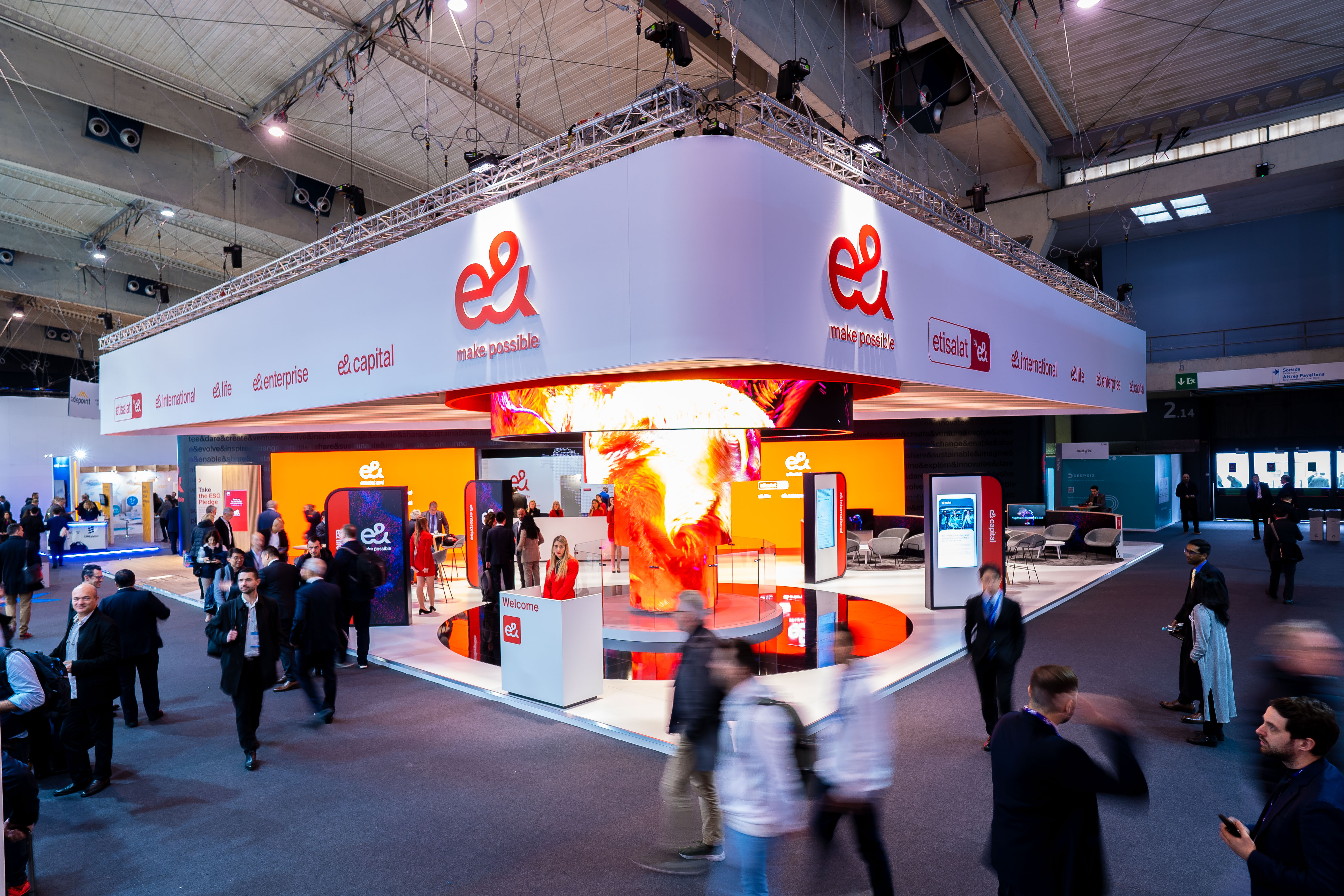Lessons in Creative Leadership.
2LK Managing Director, Dan Mason, on his experience of leadership - the biggest lesson he's learnt, his inspiration and why a good culture isn't all about drinking beer! Originally published on LBB Online.

What was your first experience of leadership?
Very shortly after I joined 2LK as a Junior Graphic Designer, my department boss left to pursue global travel. It was a bit of a shock at the time, but the business owners offered me a simple choice – we can take on a replacement, or you can step up and we can employ someone reporting to you. They obviously saw something in me even then. I seized the opportunity and never looked back. The first few years of being a boss taught me so much, but I instinctively always knew that to treat people as you would want to be treated would be a good start.
How did you figure out what kind of leader you wanted to be – or what kind of leader you didn’t want to be?
Like many people, I’ve had a lot of bosses, all whom I’ve watched and learnt from intently. I tried to apply the good skills I’d seen and filter out the bad. Above all else, I wanted to be honest. I detested a disingenuous approach and I suppose, looking back, I had a good eye for detecting it a mile off. Good employees want leaders to be genuine, even when receiving less favourable feedback. Humility and a touch of light-hearted self-flagellation goes a long way too. Also, recognising (and stating!) that we’re all good at different things. Not trying to be the cleverest, loudest or most powerful person in the room. The bosses I admired in my past were brutally honest, but knew how to get the best out of people. The key is to recognise individuality and diversity, and not to apply a single approach to all.
What experience or moment gave you your biggest lesson in leadership?
I was at a point in my career where I felt I had ‘made it’. I had no boss, I was hiring and firing and setting visions and strategies for the business. Working when I wanted to, not when was expected, and generally feeling a bit smug about things, if I’m honest. A new client unknowingly asked me “So who’s your boss?” I responded, naively, “I don’t have a boss now.” Quick as a flash and with a wink, she replied “We all have a boss Dan!” She referred, of course, to herself, our client. And she was spot on! I’ll never forget that.

Did you know you always wanted to take on a leadership role? If so, how did you work towards it and if not, when did you start realising that you had it in you?
From a young age, I knew I had the skills for being a leader of people. I have always found myself volunteering to organise social things and motivating people to get things done – I still do! I believe natural leaders instinctively find their aptitude for it and don’t have to work at it too much. There’s a confidence and belief that things will be better if I have some influence on the results. I’ve since learned it’s more about having the virtue of knowing when and how to use that confidence. Otherwise, it’s just being controlling. I’ve always liked the quote “Knowledge is knowing what to say, wisdom is knowing when to say it”.
For my sins, I’m also incredibly impatient. One of 2LK’s values is ‘Impatience is a virtue’ which reflects our enthusiasm to get things done and make quick decisions.
When it comes to ‘leadership’ as a skill, how much do you think is a natural part of personality, how much can be taught and learned?
I do think it comes as a natural personality trait. Leadership is borne out of the confidence that your decisions and direction will benefit the whole team, or project. The ability to make big decisions and be ok with the consequences. My favourite saying is “Don’t be a squirrel. The road of life is paved with squirrels who couldn’t make a decision.”
Of course, skills and techniques can be learnt too. There are so many great publications and training routes that focus on Leadership. I think there’s no better lesson than sticking your hand up and saying “I’ll run that” or “I’ll manage that team.” As long as you work in a culture that can stand together and support each other, it’s the best way to learn.

What are the aspects of leadership that you find most personally challenging? And how do you work through them?
I never, ever forget that running a business means being involved and responsible for our team’s lives. Their families. Their mortgages. Their mental health and well-being. I believe our culture strongly supports that, but inevitably there are times when you are the only person in the business who can give someone bad news, which is bound to be upsetting and will affect their lives. The Covid pandemic was particularly tough. There’s no right method or technique for delivering bad news, you just have to have the strength to live with those decisions and results – I rely on my family and business partner a lot in this aspect. Ultimately, it’s about being sure that even in tough times, you’ve treated people with dignity, respect and integrity.
Have you ever felt like you’ve failed whilst in charge? How did you address the issue and what did you learn from it?
Yes. We run a business with a very clear ‘people over profit’ ethos. But it often gets challenged as the business has to grow and be commercially robust, as it should. As an inexperienced boss many years ago, on one occasion I didn’t follow that principle. It led to a happy client and a profitable project, but an exhausted, disengaged and upset team. It was short-sighted and naive. From then on, my attitude has always been to look after my team, no matter what. Success, profit and growth look after themselves in the long term.
In terms of leadership and openness, what’s your approach there? Do you think it’s important to be as transparent as possible in the service of being authentic? Or is there a value in being careful and considered?
We run a very transparent approach to our business. From the top down. We share numbers, success and profit. We believe it lands well and our team feels part of that success, regardless of personal financial reward. There’s very little we keep confidential. Timing of the release of information is critical though. Announcing great news at a bad time (or vice versa) can be catastrophic!

As you developed your leadership skills did you have a mentor, if so who were/are they and what have you learned? And on the flip side, do you mentor any aspiring leaders and how do you approach that relationship?
My Dad was a huge mentor in my life, in a totally different industry, but instilled a real ethos of being a boss – working hard and leading by example, not accepting just ‘good enough’, as well as self-motivation and a desire to succeed.
Having been at 2LK for 23 years now, my mentors were the previous business owners, whom I admired, respected and trusted from the day I joined. They put trust in me and I was able to repay that trust. The most valuable lesson I learnt from them was to encourage my team to challenge each other, and me. To ask questions. Not to be afraid of conflict, regardless of position and hierarchy. Done well, it can be a powerful tool for brilliant work. Once you recognise your superpower and that of others, amazing things happen!
I think I mentor other Leaders in an informal way, applying the most valuable lessons I’ve learnt and helping them to challenge the status quo. To actively embrace the questioning of your peers and clients. Never be afraid to fail.
It’s been a really challenging year – and that’s an understatement. How do you cope with the responsibility of leading a team through such difficult waters?
There’s no doubt about it, the pandemic was devastating for our industry and our business.
We had no choice but to downsize, and losing good people was the hardest thing we had to do. In contrast, it was also the time I felt most close to the agency and our team. More connected. I saw more care for each other during that time, more togetherness. The culture we had built over many years carried us through, no question (as well as being financially robust and some very clever adapting/broadening of our services!)
Throughout Covid, my business partner and I took the simple approach of communicating often and being honest with everyone, treating them as we would want to be treated. Not rocket science really, but I think it was appreciated. I was stunned by employees reaching out to us, the business owners, to ask how we were! I never considered that would happen and I will always remember and appreciate that.

This year has seen the industry confronted with its lack of action/progress on diversity and inclusion. As a leader how have you dealt with this?
Like sustainability, D&I is a delicate topic. I personally find the quota and tick-boxing attitude I’ve seen around this very difficult. Of course, everyone would welcome D&I into their business, especially a growing agency like us. Diversity of culture, ethnicity, sex, backgrounds and neuro continues to be critical to our business. However, I’ve always held the view that in a healthy forward-thinking agency, this doesn’t need to be forced or initiatives set out. A disingenuous approach is easily called out and can have the opposite effect on culture.
How important is your company culture to the success of your business? And how have you managed to keep it alive with staff working remotely since 2020?
Good culture is not just important, it’s absolutely critical to our business. However, I think the term ‘culture’ is bandied around alot and often interpreted as the ‘social scene’ of an agency. But that is only a small part of culture, and arguably, the least important. Yes, we enjoy spending time together over a beer, but for 2LK, culture is about empowering people, freedom to play (and make mistakes), investing in innovation and trying new things.

What are the most useful resources you’ve found to help you along your leadership journey?
From an agency point of view, I always keep an eye on DBA Events and Training. Design Effectiveness is important to us (over aesthetics or coolness). Campaign and The Drum are good references for me too.
I’m always on the lookout for individuals who inspire me to see things in an unconventional way, who unlock different thinking. Gellan Watt did a nice set of Agency Growth Tips during lockdown that I liked. Still relevant and solid.
In addition, I look to voices outside of the direct design industry. Typically, psychology and human behavioural stuff like Rory Sutherland or Will Storr. I recommend their podcast chats with Steven Bartlett. I’m fascinated by people and cognitive behaviour, it’s actually very relevant to the experience industry. I spend hours watching visitors attending our brand experiences, just seeing how people react, engage and interact with our clients’ innovations.
Also Rebel Ideas by Matthew Syed. I like 99% Invisible too – it’s an amazing podcast about how design is everywhere. And finally, I loved this guide to briefing agencies too! I’m a bit obsessed with good briefs and ‘starting with the story’.
Let’s talk.
If you’d like to discuss supercharging your brand experiences, contact us to make the most of moments that matter.
More reading:
Hybrid realities: How real world marketing blends with digital
Workstreams of the future: Creating agile enterprise events
Five key takeaways from WXS 2023